Addressing tag burnination criteria
Is the concept described even on-topic for the site?
Yes, it is on-topic: a valid programming concept is on-topic on Stack Overflow. Currently, there are 4 criteria for question being on topic. Can questions about triggers be about:
- a specific programming problem? Yes
- a software algorithm? Yes
- software tools commonly used by programmers? Yes
- a practical, answerable problem that is unique to software development? Yes (out of 16K questions 68.4% are answered - which is a general ratio of answered questions that a lot of tags share)
At the very least community considers it to be: only 1% out of 15 976 questions posted have been closed as off-topic. The exact number perfectly describes the situation: "See other", if you want to find an off-topic question. To compare, java has 7%, javascript has 5%, windows 4%, mariadb and oracle share 3%, google-sheets same 1%.
Does it describe the contents of the questions to which it is applied?
Yes, it does describe contents. Since failing to describe contents of a question is also a criteria for being a meta tag0, let us look at what a truly meta tag is. Jeff cited an "absolutely brilliant post by Aaronut" in his "The Death of Meta Tags" blog post years ago:
they [meta tags] describe some other aspect of the question, like the author’s skill level, or the author’s motivation for asking it, or generally what “kind” of question <...>
Does triggers describe the motivation for posting? No. Does it describe what type of question the post is? No. Does it represent the asker's skill level? No, it does not. Does it look anywhere similar to beginner, subjective, and best-practices? No!
Also, 86% of questions tagged with triggers and are not closed, deleted, or downvoted contain "trigger" in them1. Only 50% of html-tagged questions contain "html" in them for that matter.
and is it unambiguous?
Yes. The OP states the "apparently a reference to the Trigger Class" as a problem, but what is problematic with that? Firstly, it is not specific to C#. Secondly, it means a class that "applies property values or performs actions conditionally". Just what a tag wiki says it should be - a rule that conditionally performs an action. Also, it is not a "single" class, see: MultiTrigger, EventTrigger ("a trigger that applies a set of actions in response to an event"), DataTrigger, and MultiDataTrigger.
Should the tag necessarily stand on its own?
The second criteria for being a meta tag is "If the tag can’t work as the only tag on a question, it’s probably a meta-tag". Can the tag trigger work as the only tag on the question? Yes, it can, it provides info on what the question is about.
Does this mean that it should be enough to tag a question with a single tag? No, it does not: java, javascript, perl, python,typescript, {{insert your language}} do not sufficiently describe what the question is, but they do when combined with more specific tags. Does this make them more or less meta? Not the slightest.
Does the tag add any meaningful information to the post?
Yes, it does. It tells us that the question is about triggers. Which ones? This is what language/product/platform tag should tell us. Should the existence of tags that "add more meaning" have a say in the tag being burned? No, burnination process considers the tag by itself and its usage.
Does it mean the same thing in all common contexts?
Yes, it does, it means "rules, that when they evaluate to true perform one or more actions" exactly. Yes, the implementation and roles differ in databases for database triggers, functions are triggered differently for function triggers. The definition stays the same.
What about other tags that represent concepts with implementations that differ from language to language or platform (see "abstract concepts" part for usage data below)? To name a few:
modules "A logical subdivision of a larger, more complex system"
stream "series of data elements which can be accessed in a serial fashion"
asynchronous "strategy for deferring operations with high latency or low priority"
pipeline "sequence of functions (or the equivalent thereof), composed so that the output of one is input for the next"
Are they all implemented differently in different contexts? Yes. Do they mean one thing? Yes. Same goes for triggers: they are maps of "events" to "actions" in all contexts.
So, should the tag be considered for burnination?
When a tag fails 4 out of 4 criteria for being burned, it should not even be discussed, let alone considered to be. Let us see the tags that get burned status-complete (about a half of the first page):
anydeskaccessleetcodelanguagecompetitive-codingpuzzlemultiple-filesnotebooksalesbusiness-modeldatabase-editionmusicrelativesubmittingejectxlworkbookidentifyingmoocembarcaderochipdecayprioritydeep
Now see the ones that got declined status-declined (I could not make myself to go even through the third of the first page, I apologize):
listsecurity-by-obscurityseam-solderresource-utilizationautomotivepython-chessphonegapmergeddictionariesunity5
Do you see a pattern? The latter ones describe a programming concept, product, framework, or an area of programming. These tags are what SO is all about, why should triggers be any different?
Finally, "how do I trigger X" is a perfectly valid question about triggers (if shows research effort, of course). One of the most popular questions about events is exactly that (and is, ironically, tagged with triggers). If you dislike events, how about arrays? Same thing there.
Does having a multitude of contexts matter?
No. There are 9833 unique tag combinations for dictionary just for questions tagged only with "technologies" listed in the original post. Does this make the tag better or worse? No. It just states that the concept that the tag represents is widely used.
Can database-trigger or a similar tag replace it?
No, as triggers are not database-specific only. There is a whole other type of usage: triggers that invoke functions in response to events or HTTP requests that have nothing to do with databases. Some examples of that are (the following graphs use the query of questions posted with tag and a "trigger" keyword in question body):
google-cloud-functions steadily rising over 3 years:
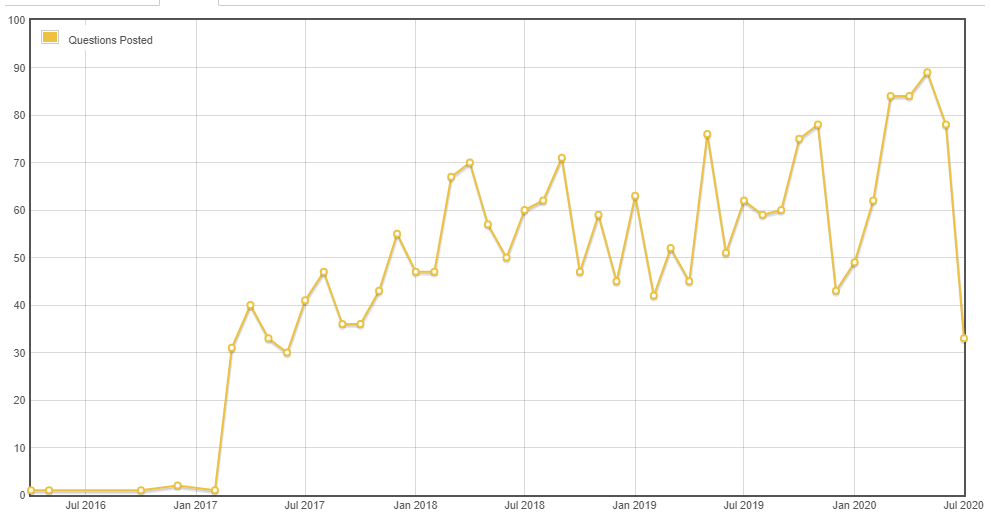
azure-functions trigger usage rising as well:
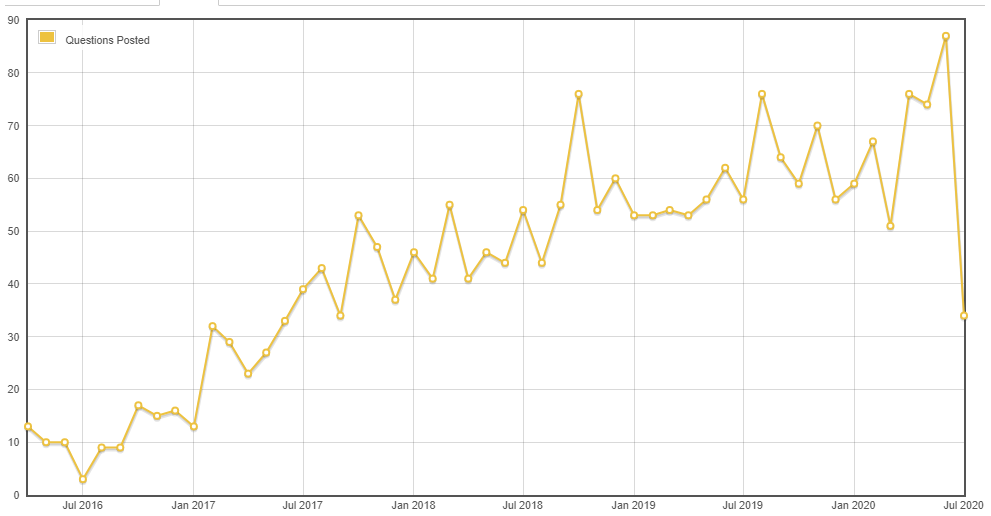
and, lastly, so do google-apps-script triggers show a rise:

At the same time questions tagged with triggers that contain "database" in them decline:

For every *-trigger branching tag we add there is a possibility that another, unexplored (or non-existing) use case can be found that will eventually become popular. If the trigger is too broad, and we need individual tags, where does the branching stop, do we need relational-database-triggers, nosql-database-triggers or operational-database-triggers? Or database-triggers-for-firebase? The list can go on.
Do more specific tags exhaust volume of the concept of triggers?
No, as shown with an example of database-triggers. If the change was approved last year, we would lose a reference point to a prominent use case. One might say that we could add a function-triggers, but there is no guarantee that these are the only possible use cases.
Does the tag correctly express the content of the question?
Yes, it does, as questions about triggers are sufficently (strict sense: meaning is not lost when substituting a single tag with these two tags) described with:
- database-specific tag like oracle + type-specific tag like dml + triggers for database triggers
- azure-functions + triggers for Azure Cloud Functions triggers and bindings
- google-cloud-functions + triggers for Google Cloud Functions triggers
- google-apps-script + triggers for simple/installable triggers
Does using trigger hinder access to information from tag wikis?
No, as this tag can be an entry point with short usage guidelines and descriptions of technologies implementing the concept. A pending attow (it is currently in contention between parties) suggested edit on the triggers wiki shows how this entry might look like (it is not ideal, and it would be perfect if domain experts participated in improving each section).
Moreover, the information could be expanded upon in platform/product or language (depending on which use case is more prominent) wikis to allow for more in-depth descriptions, lists of canonical Q&As, and more.
Do technology-specific tags exist and how are they doing?
Several technology-specific tags exist (where technology or platform name is suffixed with tag). The usage of these tags is confusing because it leads askers to omit the main product, language, or platform tag from the question as they see it embedded in the tag name.
They are also not actively used (see usage query and zero-answers query2 used for the graphs below) and contrary to the claim that watchers target these questions have higher "unanswered" ratios.
azure-triggers used with azure show stagnation (especially compared to the booming growth of questions about azure function triggers). Attow, there are 44 questions only with 40.9% of them unanswered and 11% of 43 posted completely missed, while the ratio of unanswered questions with azure is only 35.3% and 13% respectively of more than 90K questions.
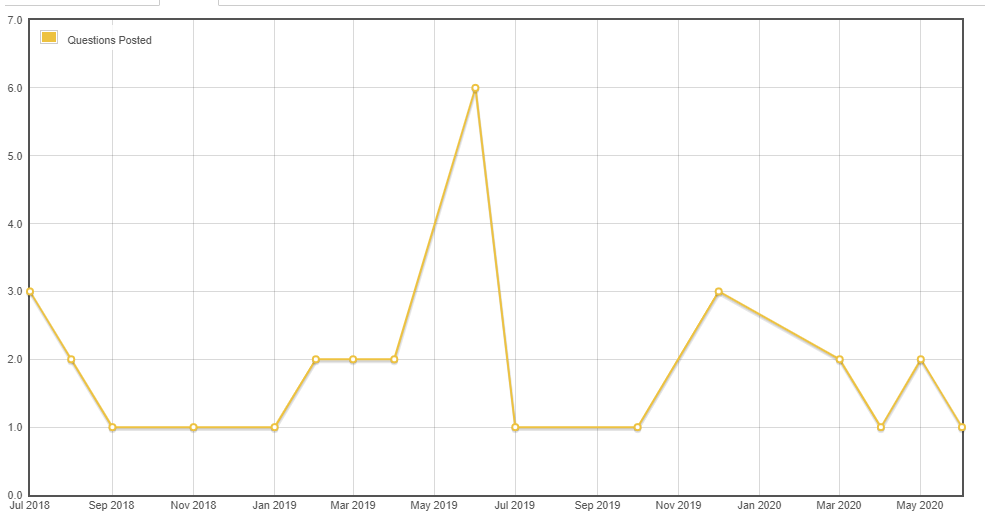
Next, we have azure-blob-trigger with azure showing slight growth, but the tagging effort goes to waste since it has 63% (!) questions unanswered with 24% of 25 posted missed completely and 0 watchers attow compared to 35.3% and 13% on the main tag.

cosmosdbtrigger used with azure-cosmosdb flatlined from the start. Attow, there are only 8 questions, 50% unanswered and 14% without answers to 4903 quesions compared to ratio of azure-cosmosdb being only 31% unanswered and 11% with 0 answers of 4,931 questions.

postgresql-triggers with postgresql fared slightly better, and with 17 questions attow, only 35.3% went unanswered and 23% of them having 0 answers. That said, main postgresql has less than usual 28.1% ratio of unanswered questions and 14% with no answers with huge 120K total.
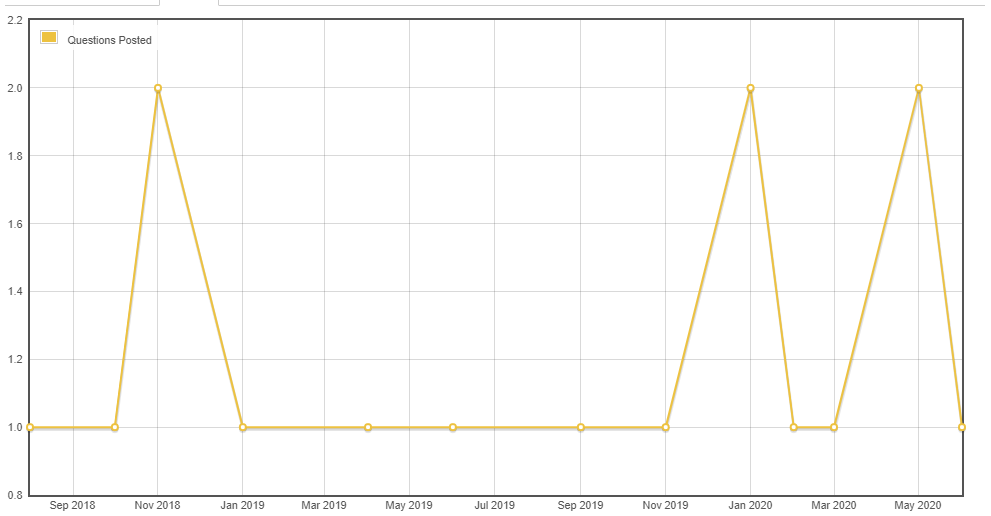
apex-trigger with apex looks promising with its usage improving, and out of 32 questions attow 50% are unanswered and 15% of them no answers, while main apex has 57.4% unanswered to 1734 total and 22% with no answers to 1728.

gerrit-trigger usage with gerrit is inconsistent, and its stats are not good either: with 52.3% unanswered of 107 questions attow, 22% of 105 have no answer at all. Both its "parent" tags do better: jenkins has 45.4% and 22% to 41K, while gerrit - 33.9% to 1,782 total and 13% no answers to 1779.
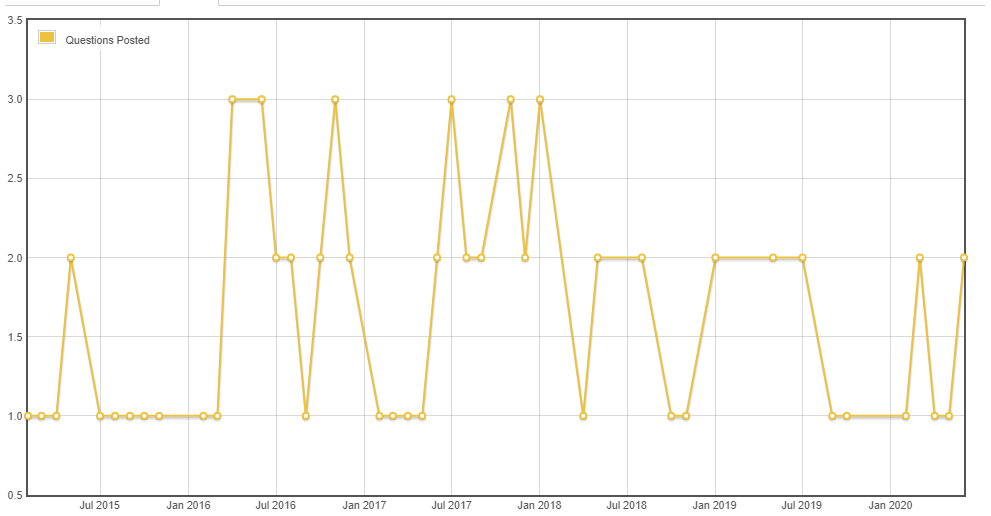
jenkins-jira-trigger usage with jenkins did not hold and with jira simply flatlined. Record 69.6% out of 23 questions are unanswered and 43% them do not have an answer. jenkins stats can be seen above, while jira has 41% out of 4901 questions unanswered and only 16% of 4892 with zero answers.


Special mention goes to sql-triggers which is already a synonym of triggers and to azure-http-trigger, that has only 2 questions, both answered and correctly tagged. That said, these 2 questions could join the steady flow of Azure questions about HTTP triggers (i.e. that contain "http trigger" and are tagged with azure):
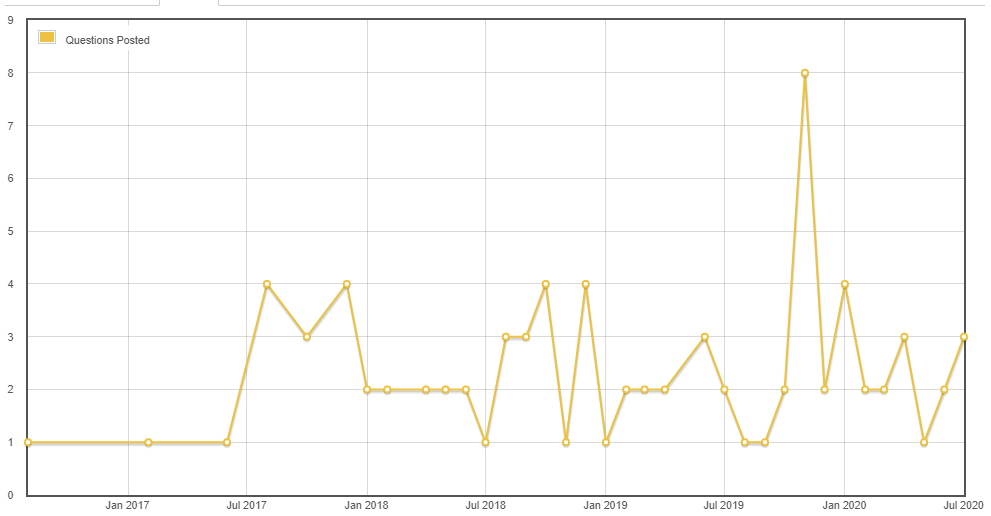
We can keep these tags, but they should at the very least be synonymized (either with general or type-specific versions).
Do other abstract concept tags exist and how are they used?
Yes, they do. If a tag represents a well-defined3 concept, it will be created and used however general it might seem, provided that different context it is used can be reduced4 to an unambiguous definition (all definitions are taken from wiki excerpts which askers usually see):
arrays "ordered linear data structure consisting of a collection of elements"
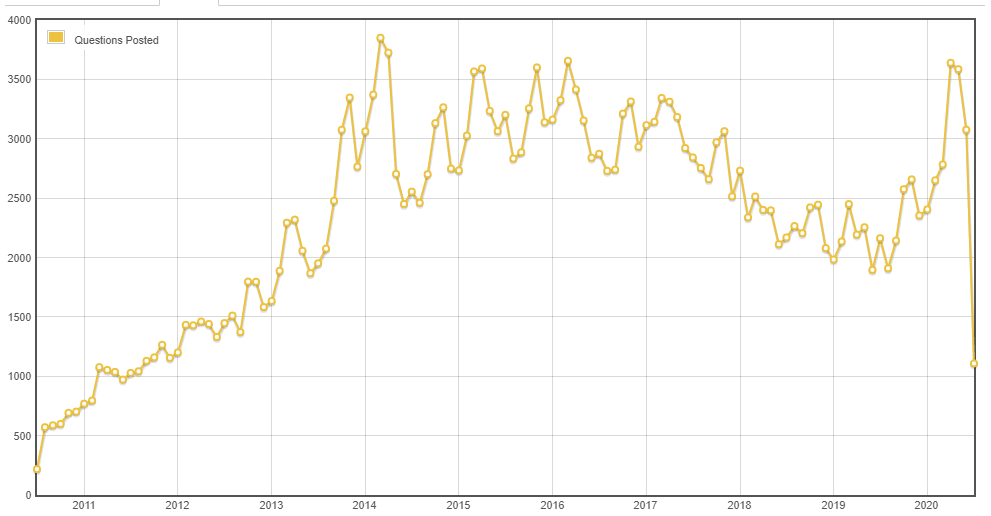
object "entity that can be manipulated by commands in a programming language" (but wait, isn't it usage steadily declining? Yes, but the reason is the rise of functional programming as compared to OOP - see next graph for confirmation)

function "portion of code intended to carry out a single, specific task" (not the best definition, but unambiguous nonetheless)

reactive-programming "programming paradigm oriented around data flows and the propagation of change"

database "database is an organized collection of data"
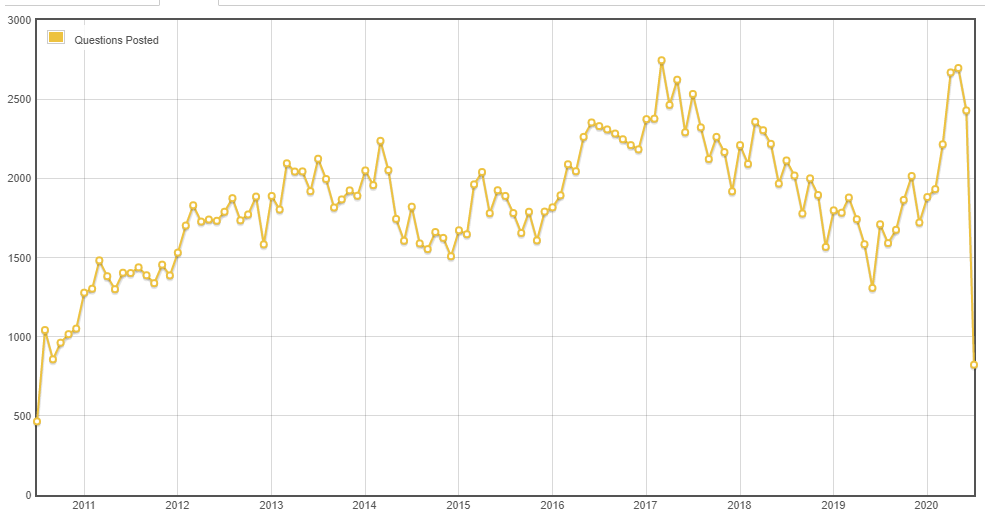
And, finally, the tag in question: triggers "rules, that when they evaluate to true perform one or more actions"

Some people are intersted in anything databases, some in database triggers, some in DML triggers only, some want to reduce the scope to MS SQL Server or Oracle DB. We have tags for each level of interest: database-triggersoracle or triggerssql-server or databaseazure-cosmosdb or whatever combination needed.
Summary and conclusion
To sum up, the triggers tag:
- misses all 4 criteria to be burninated
- misses all 2 criteria to be considered "meta"
- represents a valid programming concept among others
- cannot be replaced by a sum of its branching tags
- has a good track record of questions being on-topic and answerable
triggers should be kept, possibly cleaned up a little. If any, specific tags should be either tended to (that means answering, adding parent tags, editing in shape, etc), synonymized or pruned (burned).
Please, stop being so trigger-happy about abstract concepts. If we only have programmers that "work at Google", "get up early", "play music" or "know SQL", it does not mean we should forbid "programmer" and use "programmers-who-play-music-that-work-at-google".
0 If anyone knows how to formally define "does it describe contents" other than literally, let me know.
1 Meta tag section is under construction
2 "% unanswered" questions was taken from tag "Top users" page. "% with no answers" - from SEDE query which has a weekly delay, so both totals are provided for comparison (where < 10K questions exist and numbers differ).
3 "well-defined" means "clearly expressed, explained, or described". If "rules, that when they evaluate to true perform one or more actions" is not well-defined, I do not understand what being clear is.
4 I say "reduced" to acknowledge that general concepts mean different things in different contexts, but they share the same core definition.


















